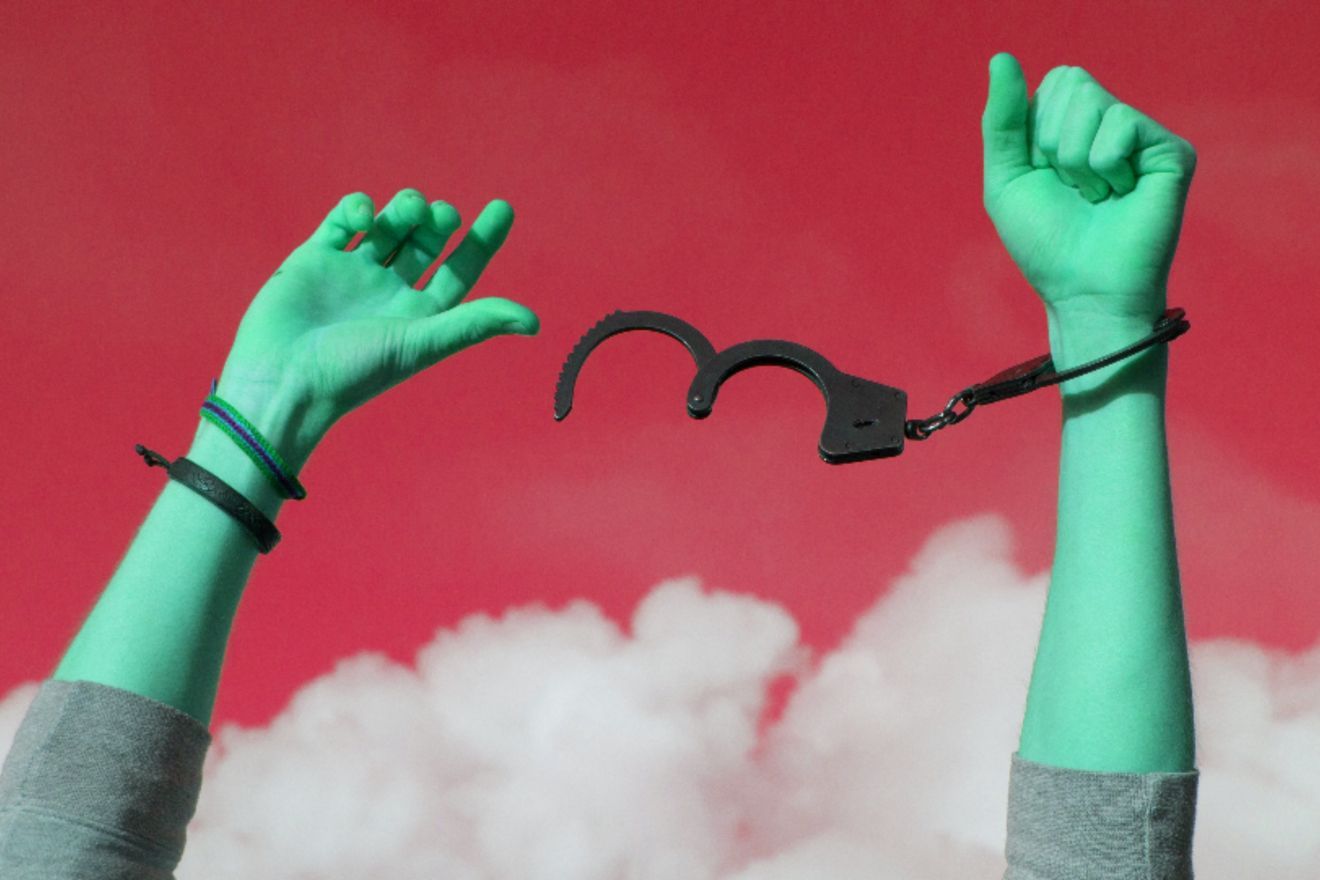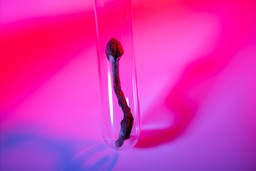Psilocybin therapy has recently made strides in becoming a possible treatment for many mental health conditions, such as alcohol and substance use disorders. Traditionally, these disorders are hard to manage, but studies using psilocybin have found that the psychedelic can help reduce dependency and curtail consumption.
Follow your Curiosity
Sign up to receive our free psychedelic courses, 45 page eBook, and special offers delivered to your inbox.Alcohol use disorder and substance use disorder are conditions in which an individual has persistent strong needs to use alcohol or drugs. Often, they face difficulty controlling their use and cannot abstain even when it causes problems in their personal and professional lives. Common terms for alcohol use disorder (AUD) include alcohol abuse, alcohol addiction, alcohol dependence, and alcoholism. Substance abuse can include alcohol but more often refers to the use of drugs. It’s also called substance dependence.
Use disorders are complex and recognized medical brain disorders. Usually, treatment is with a combination of things, such as behavioral treatments (counseling or therapy), medications, recovery programs, and support groups. However, individuals can be prone to setbacks and relapses even with therapy.
Living with use disorders for a prolonged period can lead to adverse physical and mental outcomes, including loss of relationships, disinterest in work, school, or home life, an increase in risk-taking behaviors, high blood pressure, and higher chances of health conditions such as liver disease, digestive problems, stroke, heart disease, and certain types of cancer.
Recently, scientists have been exploring the clinical potential of a psychedelic, psilocybin, in treating alcohol and substance use disorders to improve an individual’s outlook and lower the chances of adverse outcomes.
What is Psilocybin?
Psilocybin is a psychedelic. The substance comes from fungi, colloquially known as “magic mushrooms.” In the body, psilocybin turns into psilocin, which elicits hallucinogenic effects. It can also alter your perception, mood, state of consciousness, thought pattern, and produce feelings of euphoria.
How Can Psilocybin Therapy Help Those with Use Disorders?
It’s important to note that psilocybin is only one facet of these studies. Typically, the psychedelic substance is used in conjunction with psychotherapy. In the case of many of the psilocybin studies below, the psychedelic is paired with Motivational Enhancement Therapy and/or cognitive behavioral therapy (CBT). These techniques are implemented in sessions both before the psychedelic is administered and after, during a process known as integration. The results appear promising for a variety of use disorders, including alcohol use disorder and tobacco use disorder.
Many past and current trials have studied the applying psilocybin to treating substance use disorder. Many of these trials use Motivational Enhancement therapy and CBT for preparation and integration. Studies have found that psilocybin, in combination with psychotherapy, helped those with alcohol use disorder. Not only do reports indicate that heavy drinking initially decreases but also that some participants become completely abstinent long-term..
A recent study highlighted that a number of participants experienced a decrease in drinking for at least eight months after treatment, and half of the participants had ceased drinking entirely by the end of the trial. During another study, participants were given psilocybin or diphenhydramine, a common allergy medication.
Those who received psilocybin had only 9.7% heavy drinking days during the 32 weeks compared to 23.6% for those taking diphenhydramine. Furthermore, the number of standard daily drinks was also lower for the psilocybin group. As a final example, one study indicated the robust beneficial results of psilocybin for alcoholism are also believed to be long-term, with 32% of participants found to be completely abstinent, not drinking alcohol at all, six years after the study post completion.
Psilocybin may not only be beneficial for alcoholism. Another small study investigating tobacco found that psilocybin significantly decreased smoking, with eleven out of the twelve participants stopping tobacco on their target quit date. Furthermore, 80% of individuals in the study were continuing smoking absence at the 6-month follow-up appointment. The psilocybin-assisted therapy for tobacco used CBT and reported substantially higher smoking abstinence outcomes than usually seen with other medications or CBT alone.
Psilocybin is thought to elicit these results because of its effect on the brain. Like other psychedelics, psilocybin activates your brain’s serotonin receptors (notably the serotonin 2A receptor). Serotonin is a chemical messenger responsible for many functions, like mood and sleep regulation. The psilocin, the active metabolite of psilocybin, activates these receptors and affects mood, perception, and imagination. Scientists have observed it also affects the Default Mode Network (DMN), a part of the brain responsible for information collection, recall, future planning, and other introspective cognitive processes. When patients take psilocybin, portions of the DMN’s pathways are temporarily disabled, causing regions of the brain to communicate in a different way. Researchers theorize that this may help those with use disorders break out of their rigid thinking patterns associated with addiction. They may also have new insights into why they misuse substances such as unresolved trauma or as a way of avoiding difficult emotions.
Finally, researchers suspect that psilocybin’s positive outcomes on use disorders is due to the individual’s experience while under the psychedelic effects. Participants in the study reported that after two doses of psilocybin within twelve weeks, they underwent meaningful experiences that altered their relationship with the addictive substance. However, this is a complex issue that requires more research. They have found that those who undergo a “greater mystical experience” often experience a more profound therapeutic shift in behaviors.
How is Psilocybin Therapy Used to Treat Alcohol Use Disorders?
Patients take psilocybin orally. In the case of the study mentioned above, the drug was in capsule form. Individuals were given anywhere between 25mg and 40mg of psilocybin in a single dose, based on their body weight (mg/70 kg). They received two doses over eight weeks with Motivational Enhancement Therapy and Cognitive Behavioral therapy during the non-drug preparatory and integrative sessions
Psilocybin alone is generally not recommended as the sole treatment option. Medical professionals prescribe psychotherapy along with psychedelic treatment. Participants will generally need to undergo therapy sessions before and after administering psilocybin. The set refers to an individual’s mindset going into the treatment, as it’s a vital part of therapy success. Sessions following a psychedelic trip are generally referred to as integration and can help an individual work through what they saw, felt, and experienced while under the effects of the drug.
It is also important to note that therapists were also present with participants during the eight-hour medication sessions.
Are There Any Disadvantages to Psilocybin Treatment?
Psilocybin can have adverse side effects. In most studies, participants commonly experience elevated heart rates and blood pressure. However, researchers note that these effects usually aren’t lasting and generally don’t harm the individual’s health. Psychedelics can also cause a “bad trip” in which the individual experiences anxiety, intense fear, confusion, agitation, and psychosis. Generally, these negative symptoms are not long-lasting in clinical settings where well-prepared and screened participants are supported by a therapy team. Psilocybin is not considered chemically addictive.
Takeaway
Psilocybin holds promise as a treatment option for those with alcohol and substance abuse disorders. Its ability to produce profound, meaningful experiences and “rewire” the brain may be why it can reduce addictive behaviors and dependency. However, more research is needed to understand its effects on these complex disorders.
Psychedelics, including psilocybin, should only be administered by a medical professional in a safe, professional setting. There are risks involved with taking psilocybin, though they are often minimal. Psilocybin treatment is usually treated simultaneously with psychotherapy to help increase benefits and reduce adverse side effects.







